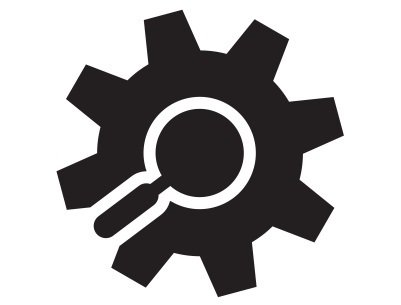What We Optimize
Whereas most legacy education systems optimize for test scores, the Collins Institute focuses on enabling young scholars to become self-sufficient, world-class players in the real world.

If the Institute is not optimizing for test scores, what is it optimized around?
What the Collins Institute was built to maximize:
Self-Sufficiency
While the legacy school system is focused on getting students into top colleges, the Collins Institute for the Gifted sees that as one of many acceptable paths to self-sufficiency, including starting an impactful non-profit or having a cash-positive company by graduation.
Identity & Philosophy
We help our scholars develop a framework for deciding what they believe and who they want to be without pushing them to particular outcomes or views. We see this as one of the most important aspects of a person's education and one almost entirely ignored by extant systems.
Practical Skills
The Institute was built to optimize for the skills most relevant to living a successful, sustainable, and fulfilling adult life. For this reason, we focus on some unusual subjects such as sales, finances/taxes, coding, dating, and emotional regulation.
Final Projects
The capstone of the skills built at the Institute will be students' final projects. While new project types can be approved, default choices include being published in a peer-reviewed journal or building a cash positive company.
An effective school system is a function designed to maximize a specific outcome. Because the legacy system has only been updated iteratively, new innovations fail to recognize changes in the optimal outcome for a student. College is no longer the panacea for a good life it once was. Having increased in cost around 200% in the past twenty years, college degrees no longer equate to job security. Blindly funneling children to college and telling them to figure out whether or not it is a good choice for them after they start is just leading them to a cliff, placing your hand on their back, and shoving them off. The college system that exists today is appropriate for some life paths and not for others.
Ensuring our scholars can achieve financial freedom and maximize their potential is a more complicated equation than simply solving for college admissions. That said, our scholars have an enormous advantage when applying for college due to the many tangible success stories they are able to generate through our unique testing system.
Unlike other school systems, we do not stop measuring student outcomes at graduation. Instead, we will continue to monitor graduates' process throughout their adult lives and adjust our methodology based on longitudinal data.
Our goal is to simultaneously give our scholars the foundation they need in core subjects relevant to modern life (math, writing, coding, etc.) such that a deficiency in any of these will never be the factor that holds them back—all while facilitating a deeper exploration of their primary strengths and passions.
What Subjects Are Covered at the Institute?
The Core CurriculuM
Math
Studies have shown math is one of the only subjects where students suffer when given too much freedom. For that reason, we teach math more sequentially than other subjects.
Two key differences between the math we focus on: (1) We do not see it as important to be able to do math in one's head and (2) we focus more on understanding statistical analysis when contrasted with mainstream high school level math (e.g., when to use a Chi Squared test vs. an ANOVA).
Writing
The Institute teaches writing within its modern context, be it technical writing, social media posting, or email composition. We judge writing practically based on its ability to achieve its intended function, such as gaining readership, successfully explaining a complex subject, changing minds, driving actions, or inspiring responses.
Philosophy & Identity
We believe a core purpose education is to give students the framework they need to decide who they are and what they believe for themselves without someone spoon feeding answers. The Institute's philosophy education emphasizes independent thought over memorization of extant philosophical schools of thought.
Life Theory & Strategy
Life theory delves into questions like: "Can I make a greater impact by working a corporate job and donating money or directly working on a cause I believe in?" "How do I handle cognitive biases when making major life decisions?" "Do I want a prenup? How can I broach the subject if I do" "How do I navigate difficult conversations?" and "How can I identify red flags in potential romantic partners?"
It focuses on all of the most important strategic decisions of an individual's life and helps students build a framework for logically thinking through major changes before they arise rather than allowing them to blindside students.
Sciences
The sciences are divided into three paths based on the skills needed to excel at each. Each path is counted as its own domain:
Green Sciences: Comparative anatomy, ecosystems, weather, etc.
Red Sciences: Chemistry, molecular biology, cellular biology, physics, etc.
Blue Sciences: Human anatomy & health
Coding & Engineering
We believe we are entering an era in which an ability to code is as critical to long-term career prospects as an ability to write. Coding cannot be treated as an extra-curricular subject. We gauge students' mastery based on what they can achieve with their coding and engineering skills, again focusing on functional outcomes instead of technical proficiency.
Fitness and Health
This domain's mastery levels are achieved through objective measures of physical fitness and health while taking into account any underlying medical conditions. This field does not include things like team sports, which are only measured through their effects on psychical health (instead, team sports are seen as more tied to our Social Mastery domain).
Life Skills
The life skills domain is dedicated either to skills that are needed frequently in adult life or capabilities that have a high probability of saving a student's life. These include things like first aid, swimming, repair of common home appliances, etc.
Finances, Investing, & Taxes
The sooner in life someone can understand the consequences of the debt they take on, how to get an SBA loan, compounding returns, and the time value of money, the better off they will be. This is one of the shortest of the domains and can be completed in less than a year, yet is still critical to the long-term success of our students.
History
Like the sciences, history also diverges into subdomains after a student completes the basic "history of the world." Unlike the sciences, these sub-domains are designed and chosen by the student based on the areas of history into which they want to dive deepest.
Persuasion & Sales
Whether a person is starting a company, fundraising for a nonprofit, or trying to secure a job at a company, an ability to persuade action is critical. This domain will be one of the most involved of our subjects and focus heavily on functional aspects of persuasion (such as A/B testing cold email campaigns), as well as the academic angle as explored through psychology and neuroscience.
Social & Self Mastery
While this subject is in part designed to ensure that students are not missing out on the social development they would normally achieve just to survive in classic school environments, we also emphasize self-knowledge and emotional control, and the roles these skills play in leadership and strong interpersonal relationships.
World Events
Through our World Events curriculum, students learn how to educate themselves on the current state of the world and engage with the world as it exists. Studies optimize around interpreting biased information, taking a critical eye to both conventional wisdom and demonized groups, getting involved with local politics, world politics, and supporting causes about which they are passionate.
Foreign Languages
This is the only completely optional domain with no minimum mandatory component.
